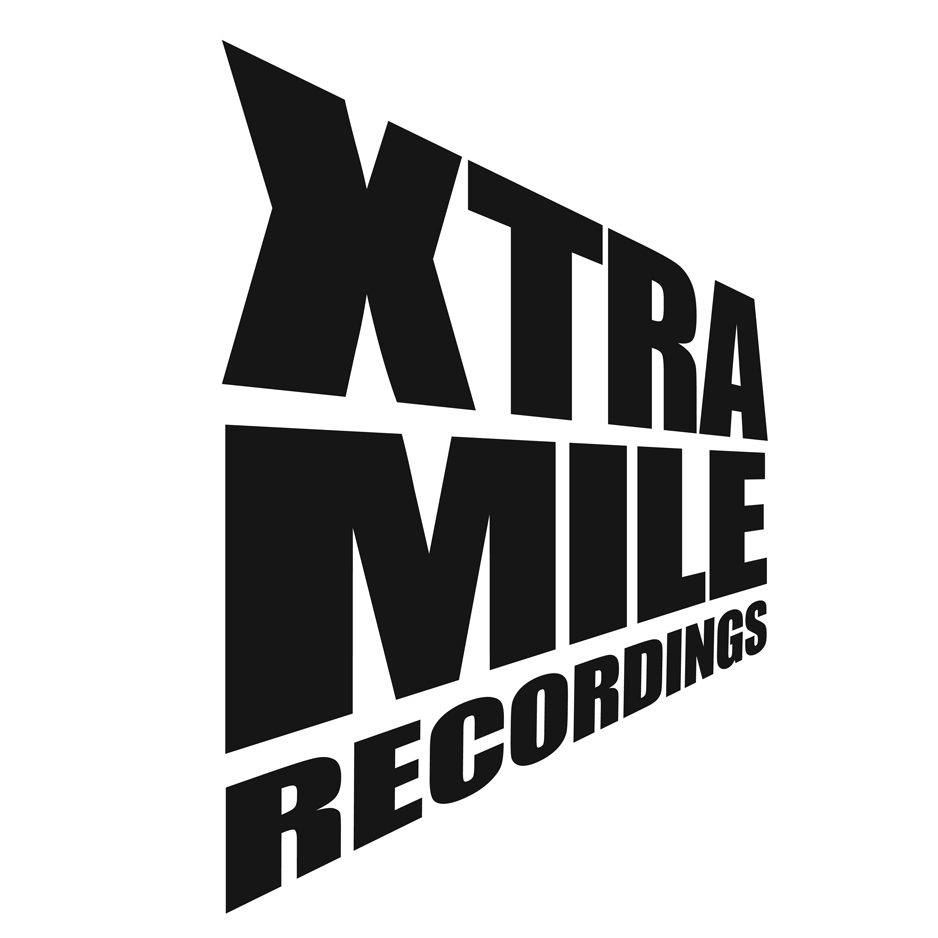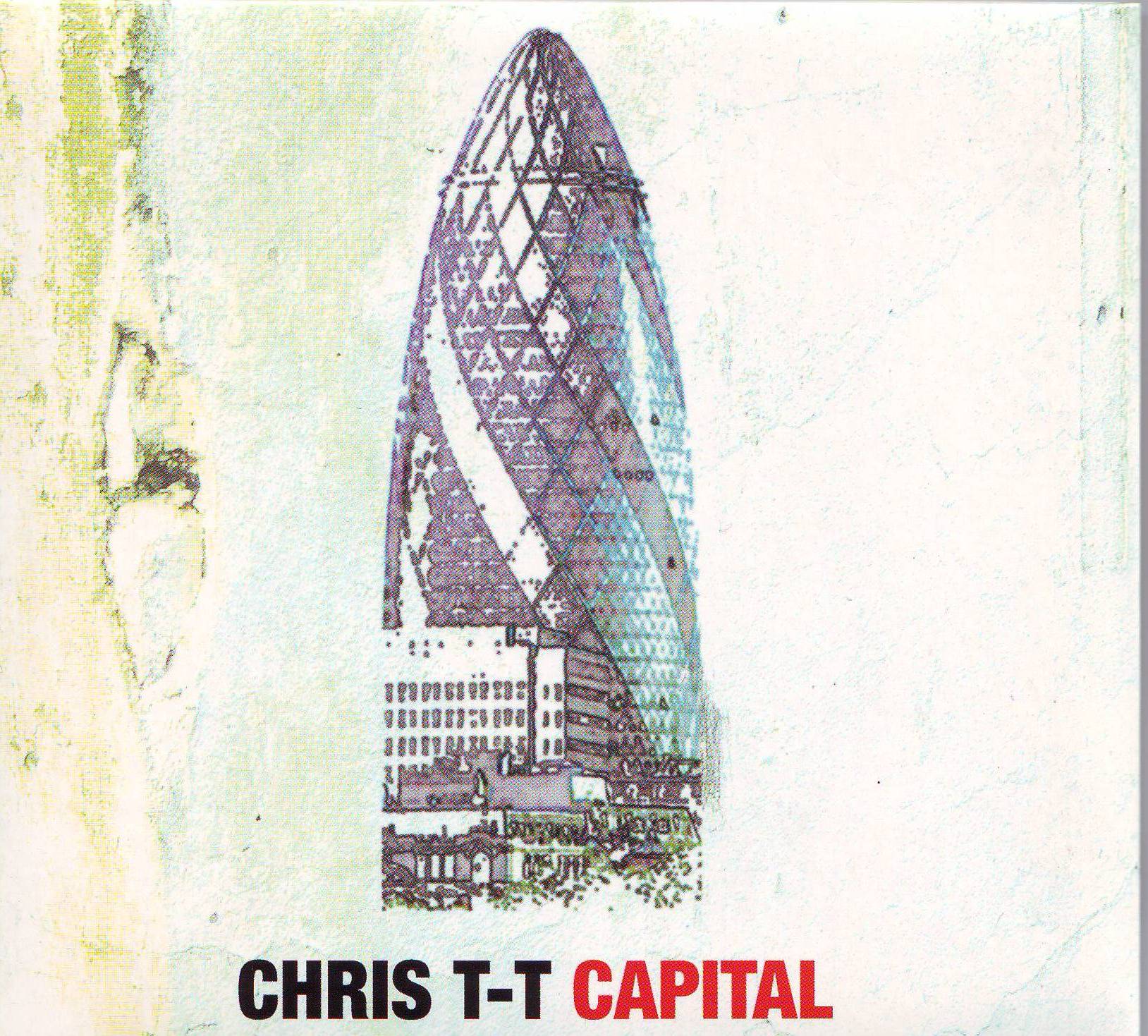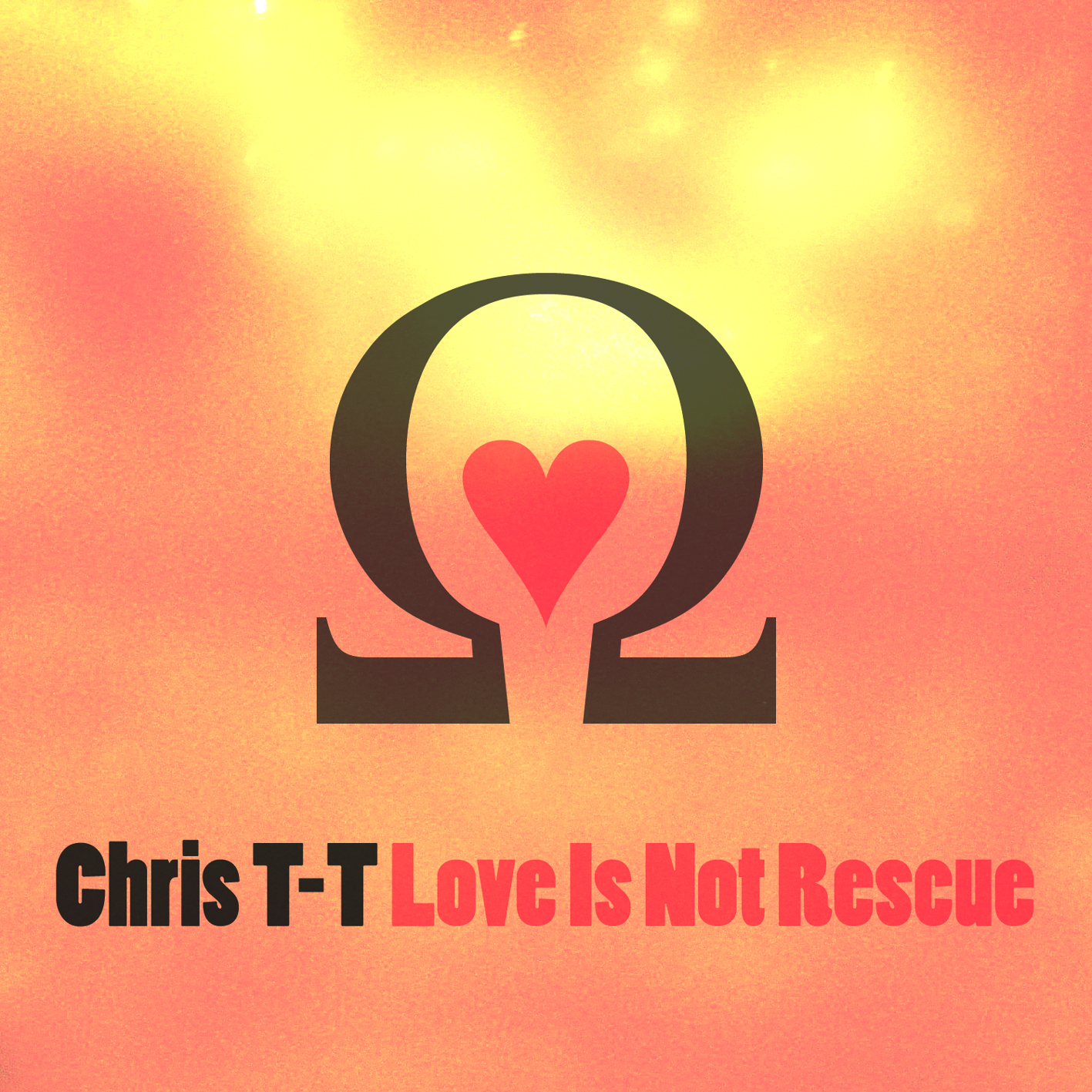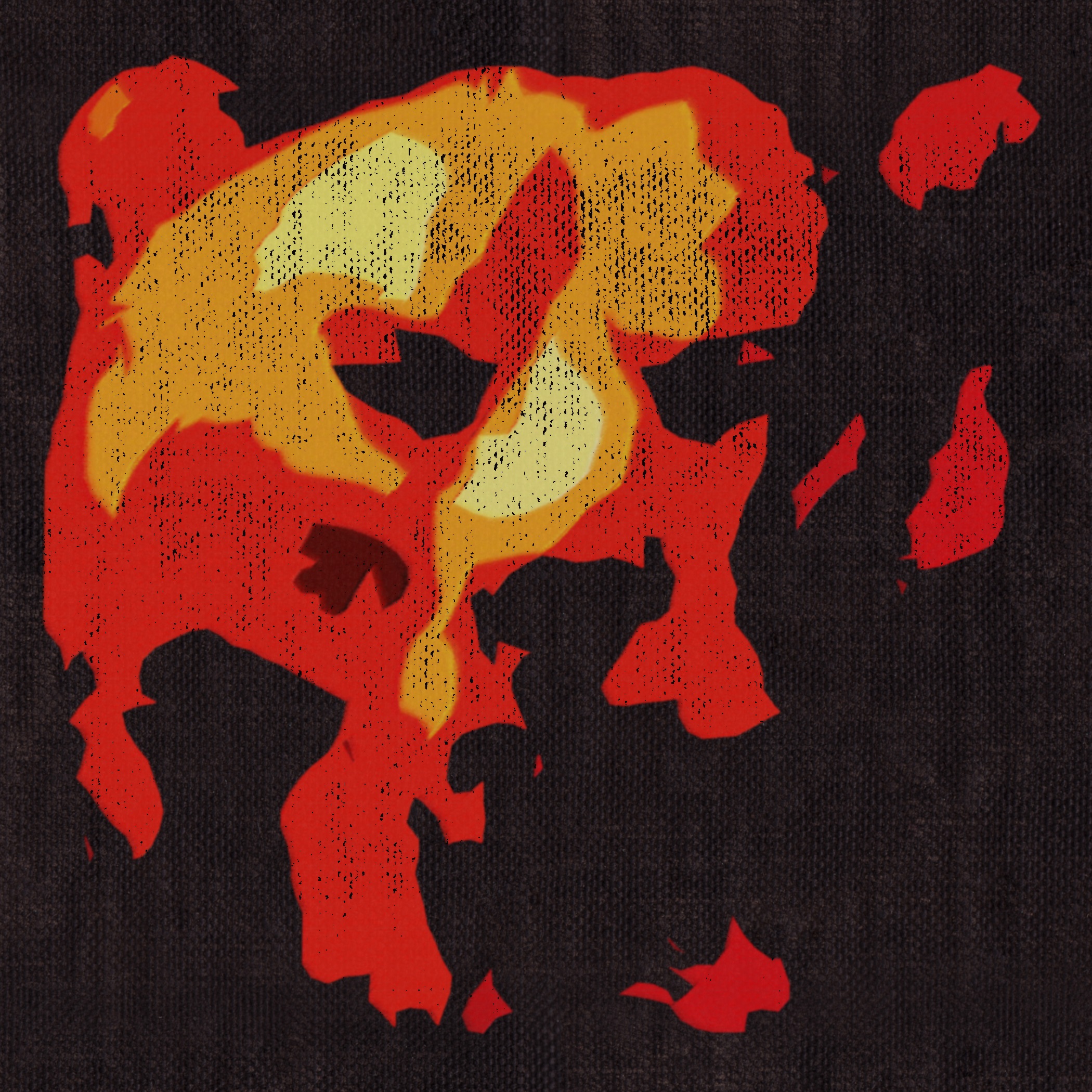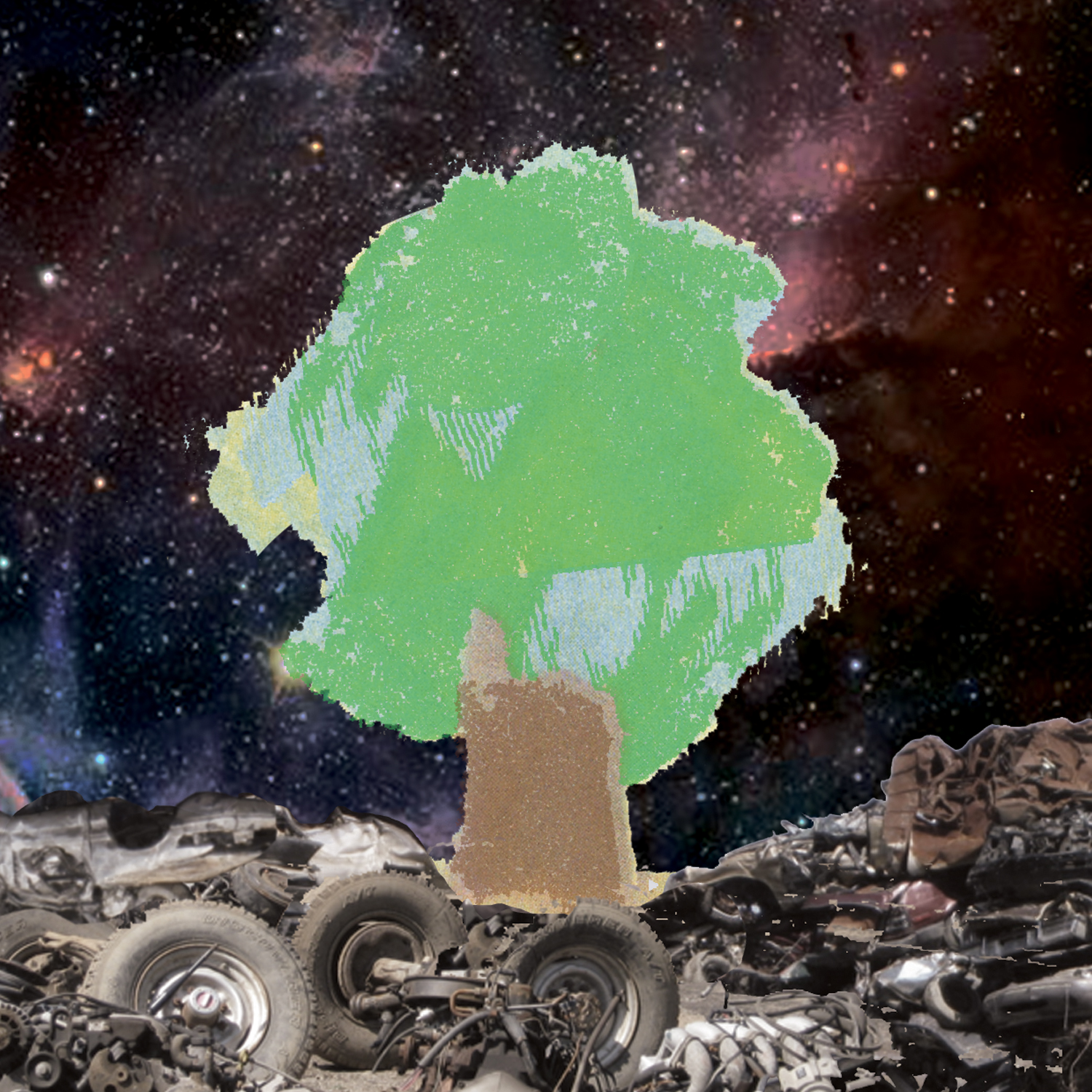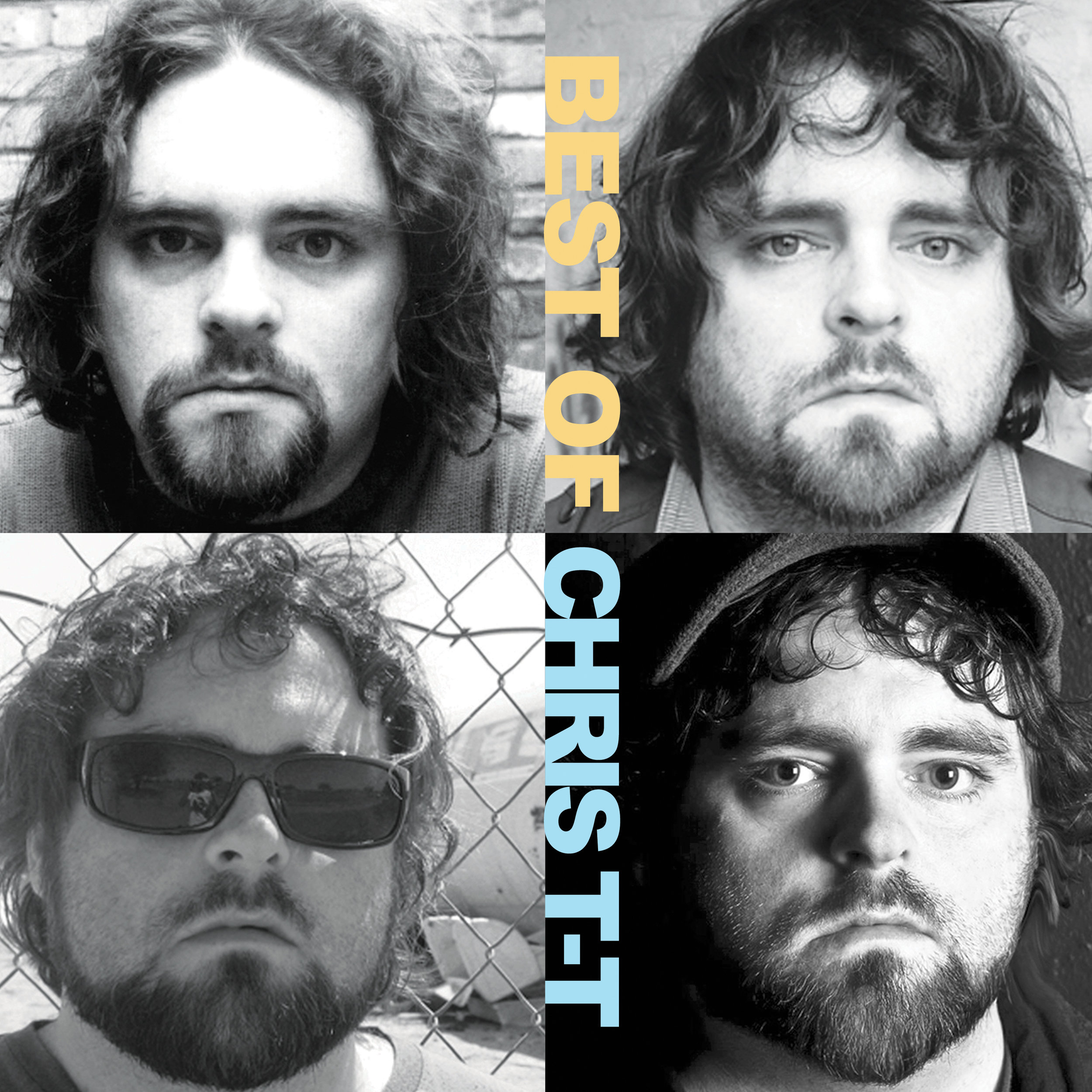Preaching to the converted: Chris T-T on 20 years of Chris T-T
- 19/05/2017 -
Chris T-T, as a public song-crafting and touring entity, is both celebrating 20 years of playing music and shedding this identity after two decades. Before this announcement, and knowing the wonderful 'Best Of' 2CD collection was on its way, we threw some questions Chris's way for him to answer. We tried to dig deep and ask him about his career overall. See how we did below.
You can buy Chris T-T's 'Best Of' from the Xtra Mile shop. Interested in more of his back catalogue? We have all his albums since 2008's Capital as well as some EPs, t-shirts and more. Buy them here. Chris T-T's final live dates can be found on his website.
We've also a special edition of Xtra Mile Radio on Spotify with Chris T-T talking to...himself. Here it is.
We will have a little more Chris T-T #content to celebrate 20 years of his brilliance. Keep tuned to XMR HUB for more in the coming weeks!
Brad Barrett (Writer, XMR): You're 20 years down and ten albums in. At this point, what prevents you from repeating yourself: determination, constant curiosity or fear? None of the above?
Chris T-T: I’m still curious, want to learn the whole time and I still don’t have fear about what to write or sing or say, so that’s all good.
But I do repeat myself, to an extent. Songwriters have habits we return to, maybe like a ‘tell’ in poker – sonic, melodic and lyrical DNA burnt into us like neural pathways. Trying to avoid those tricks or second guess them is part of the long game. For example when I fall back on that sarcastic tone every so often that haunts my career; from ‘...Injured Popstars' to ‘...Huntsman’ to ‘Love Me I’m A Liberal’.
Never repeat all your tricks at once in the same song!
Is songwriting still a challenge?
Yeah songwriting is definitely still a challenge; it can trap me until I’m throwing stuff at the wall (mugs of coffee usually) and it can make me dance around the living room in triumph over a rhyming couplet. Mainly, Brad, it’s 20 years in and I haven’t got it right yet.
Your work has often been steeped in humour. How difficult has it been to retain that with each year's temptation to respond to politics, injustice and human or ecological atrocities?
I don’t think humour gets harder when the world gets difficult; if anything it’s a powerful tool to help strengthen us in tough times and I think we weave protection spells of black comedy around our disasters. Like that peculiarly English trait (or stereotype) to approach the most horrible shit in the world with sardonic jokes.
One thing that amuses me about the label ‘protest singer’ is that my best political stuff is either so bleak, or so sarcastic, that it’s practically useless for rabble rousing. People often sing along with a kind of awkward self-aware relish – like a guilty pleasure – that I absolutely love. But it doesn’t suit the sincerity and optimism of a protest or rally.
What has changed about what you're striving for in a songwriting capacity?
I think my history is songs built from complex, nuanced lyrics, attached to very simple music. So now I want to allow myself more musical ambition and complexity, while striving for lyrical conciseness (or abandoning lyrics altogether).
Thing is, I’ve got better at the craft but lazier at the art. My songs are better arranged and better performed, they come across as more ‘complete’. Yet to my ears I sound too ‘normal’, less individual than earlier on. Me and my small crew used to have a relentless “what will get screwed up if we press this button?” kind of attitude. Then somewhere along the way, we got good, tidied ourselves up, gathered too much experience and found out what all the buttons do. I miss pressing buttons without knowing what they’ll do.
Image by Sarita Tam
You bagged a slot at Cambridge Folk Festival, which seems an appropriate way to celebrate 20 years, even if it is long overdue. Perhaps that it is overdue might be appropriate in itself. Do you feel you've more than proved yourself over the last 20 years and, also, has proving yourself really ever mattered to you?
Funny thing about Cambridge Folk Festival is I don’t think they’re bothered at all about my 20 years or my ‘best of’. In the folk scene, you do 20 years, you’re just starting out! They’ve specifically booked me to sing the A.A. Milne poems I set to music a few years ago. They want a nice, safe, family-friendly Sunday afternoon, which is fine. I offered them an additional solo set doing my own songs (for no cash even) but I don’t think they’re going for it. More than the performance, I’m doing it to get some artist interviews for my folk radio show and hopefully hang out with Jon Boden for longer than we usually get.
Have I proved myself? I’m not being obtuse but sincerely don’t understand what that means: can’t fathom if I have or not.
Having toured the country and become familiar with each region, and having the ability to switch between folk and rock genres (and therefore scenes), what have been the most significant or noticeable changes in the UK music scene that have developed since 1997?
Easy: the format shift from physical (via download) to streaming has changed everything, forever, fundamentally. And although it’s done and dusted now, it’s clear that many veteran people in the music business still struggle to get their heads around precisely what occurred and why.
The exact same seismic – yet currently hard to imagine – shift will take place in every part of industry that sells simple physical items – clothing, toys, accessories, packaging – when the cost of local 3D printing drops below the cost of mass manufacturing.
And the exact same seismic – yet currently impossible to imagine – shift will decimate the white-collar middle class information industries, such as legal and accounting businesses, and design and layout businesses, when AI and blockchain ‘smart contact' tech drops below the price of a human solicitor or accountant.
Add to that automated cars, lorries, delivery services. You’ve got most of the world out of work, except those chaotic creative people.
At some point ‘The Idea’ becomes the only remaining human act of transactional value – and even then, only once per iteration, since it’s impossible to copyright The Idea when it can be instantly anonymously replicated in any format by any means from the moment it is experienced.
So. We’re going to need one fuck tonne of a welfare state, basically for everyone in the world, while still trying to save the planet from the equally inevitable parallel ecological catastrophe. Or the journey down will be Hell on Earth.
But I digress, sorry! Cut that bit if you fancy.
You mentioned that it was a fairly difficult (perhaps cathartic) experience compiling your 'Best of'. What were the challenges, and what was it like going through 20 years?
Cathartic more than difficult, you know. It was less difficult than, say, putting the bins out when it’s raining. But listening to the old music takes me back to the choices and crazy happenings and stresses we had making it. There’s a lot of over-thinking and nostalgia involved, some of which is inevitably unhealthy. I kept having to tramp down the pesky ‘what if’ or ‘if only’ mindsets. But then I’ve laughed a lot too.
Chris T-T – 'A Hole Full of Submarines' (official lyric video)
Do you think this sort of compilation is reductive or not indicative of your career?
Funnily enough I’m enjoying Disc #2, which is obscure and unreleased recordings, a lot more than Disc #1, which is the tracks I’m best known for. So perhaps Disc #1 on its own would’ve felt a bit reductive, because it goes all out for the populist jugular. But taken together as a double album, I think they’re very positively indicative of the great stupid adventure that was being me for 20 years.
Would you describe your music, especially your political songs, as hopeful or pessimistic overall?
I’d say deeply pessimistic. I write best (most instinctively and organically) in a place of despair – and then I’ll try to cut chinks of light into the lyric later on, as the song comes together. The early demo versions are always the most miserable of all. Everyone dies!
The most optimistic songwriting moments tend to be the humour – and also the psychedelic vision type bits, like flying animals or whatever.
Personally I think one of the toughest things in anything you do, but especially anything creative, is self-criticism. It's hard enough to create things that you believe matches your own standards, but then coupled with any expectation frorm an audience it must multiply the difficulties – how do you route that, or channel it, after 20 years of working through any blocks or pressure whether self-made or from outside forces?
Good question and I agree. I’m fairly good at both self-criticism and detachment. I know when a critic has hit the mark, or when they’re off-piste, or being an arsehole. The long career makes it easier to sense people’s agendas but not easier not to give a shit.
The best move (and everyone knows this, yet it’s never easy) is to remove the audience completely from any creative equation: it’s none of their bloody business what you’re doing until it’s mastered and a finished product, one reason I despise crowdfunded arts.
My biggest blocks have always been (boringly) economic. Because I never had the breakthrough commercial moment and I don’t want loads of credit card debt, I’ve never built up a reserve of funds to make music, or spent money on building a solid infrastructure around the business side of being a performing artist.
What that means in real terms is exactly what you’d imagine: you run out of resources. Your record lives within its means. Fixing something that’s not good enough is fine if it just needs two days remixing, or half a day re-taping a part. But I’ve never, ever been in the position to just scrap a body of work and start again because it wasn’t quite right.
So I’m (audibly) always a sticking plaster kind of artist, not a ‘wait for the perfect outcome’ kind of artist.
What lessons do you think others could learn from you about writing, recording and playing music live?
The bits I’ve done correctly are: travel light, tour hard; be ‘about something’; don’t rely on your packaging because however sexy your packaging is, it’ll get old fast; party hard but keep it charming (actually I don’t know if I did that correctly but I tried!); focus on the work; say ‘yes’ to stuff.
The bits I’ve done wrong are: don’t get trapped in one identity – use as many IDs as you like, try out different names and presentations for different projects, until one sticks. And don’t be scared to change it up. If something isn’t working, be sober about what’s going wrong and fix that. I stuck for years with situations that drained my momentum and didn’t make the best of my strengths or talent.
Also, early on, play with as many people, doing as varied types of music, as you can including genres and styles you wouldn’t normally listen to. Gather up all of that experience as young and fast as you can, locally or just in a room with your mates, before any of the outcomes start to matter.
Overall, do you think you've managed to retain the sort of principles and goals you either set out with or wanted to maintain throughout your career?
On the whole, yeah. I’m at peace with how I worked over the years. I’m badly organised but there’s not a string of broken commitments or broken hearts or missed gigs or anything. A few bad fails, like anyone has – but no patterns of negativity.
You've also crossed a threshold from when the music industry was still largely physical sales, streaming didn't exist and mp3s were only just becoming the future but seen more as a threat than something to monetise, and mass social media was a distant dream. Do you feel you've always embraced the future and technology? Were you at all concerned back in the late nineties about how you might continue making your music outside traditional structures? What's been your favourite advancement for making music and also for distributing and marketing music?
I love tech and thinking about the future but I rarely do anything useful about it. I just enjoy those apocalyptic conversations.
Yes, I was thinking earlier than most about online music replacing physical formats – I gave an assessed talk at my college about it in 1995 and not a single classmate in the room, nor the lecturer, believed a word I said. It was like I was telling science fiction stories.
My favourite tech advance has been the move from laptop to smartphone – not so much a specific platform, but all the various systems, from Spotify to iTunes to podcasting to selling merch online – all going mobile. I love the flexibility of it. It’s revolutionary for touring; even just having a satnav and Googlemaps and the tools to book a hotel online all inside your phone.
Right now I’m most excited about VR and AR and also the blockchain.
To me you represent one of the more open and forward-thinking artists in all sorts of ways - from accepting music industry changes, embracing and campaigning for social change and environmental protection, and even ways of changing sound on each of your records. Are there any areas you feel you fall down on or can't let go of traditional ways of thinking?
I’m a terrible project manager, so the last few years managing my own affairs and booking most of my own shows have been exhausting and poorly done. I joke that if my manager wasn’t me I’d sack the dick. But the truth is, I’d possibly sue him.
I’m lazy and scared to throw my physical body into experiences. I can’t even go on a rollercoaster. I envy those friends who can throw their body into experiences with no hesitation, as much as I can do that with, say, creative thinking.
Maybe it’s a ‘traditional way of thinking’ to still be signed to a record label – but Xtra Mile is one of the very best aspects of my working life. I’ve stayed on the label for their community and integrity and the people, not because I ever falsely imagined it was their responsibility to make me a star or something.
What do you think the UK could do to encourage and aid British and international musicians when working in the country?
That’s a massive question, you could write a book. You asked for it…
My real-world answers are:
- Put much more live music back on telly. Destroy the reality talent shows, burn them down and return to a gig-based A&R community, so artists are signed at shows instead of on YouTube, then when they’re big enough appear on TV shows that just put them in front of a crowd with good sound and let them do their thing. Kids TV and late night TV both used to have major live music elements that we could do with having back.
- Arts Emergency’s wonderful mentoring model for an ‘alternative old boys network’ is spot on; that deserves massive support from everyone and funding from every arts-friendly university and corporation.
- Ring-fence public arts funding to be spent in the UK (unless it’s specifically for touring overseas). So if an artist gets their album funded, they should use a UK recording studio and mastering engineer, and so on.
- We should’ve fought much harder for reciprocal visa arrangements with the USA for touring artists, especially the times there’ve been Democrats in charge of the USA.
Now, here’s my flight of fancy that I actually wrote first, in response to this question, you’re welcome to leave this in or delete it:
- I’d restructure and re-contextualise UK arts funding from the ground up (which puts me at odds with good people fighting for more arts funding overall – although I’d agree there should be more).
- Ahead of funding any individual projects, I’d love to see organisations like Arts Council and BBC shift focus onto entirely open access infrastructure to benefit anyone and everyone making and sharing art. So: custom-built accommodation and food-halls for touring performers, national digital distribution systems, the iPlayer as a hub for anyone’s podcast or radio show, BBC TV providing a national YouTube type host space, a National Gallery that is a commission-free (or commission-minimal) online selling space for any artist. The potential ideas are endless, the important bit is the shift in focus away from supporting invdividual projects that have somehow “proved their worth” (in a system that I find to be just a breath short of corrupt), towards building a totality of access for a creative population.
- For me, every system and platform that has unfolded online as “crowdsourced” or “open” alternatives to conventional distro should’ve been snapped up or immediately rivalled by government. Out in the real world there’s a phenomenal shift from the paradigm where most people were consumers and a tiny few were producers to a paradigm where everyone is both producer and consumer, constantly, with the dividing line between those two activities getting thoroughly blurred. And the amount of profit a small number of global tech firms are creaming off that burst of natural human creativity and ingenuity are just mind-bendingly staggering.
- So: imagine if you were housed, kept warm, watered, fed, clothed, given access to culture and transport ALL for nothing, except that every photo or song or video or piece of writing you shared was added into the overall pot of the National Cultural Heritage. If you had a ‘smash hit’ in that context, you wouldn’t suddenly get rich – or get more stuff – your reward would simply be reputational. In fact you wouldn’t even retain copyright beyond people knowing you came up with it first. Anyone could sing your song or read your story. But you’re never in fear of destitution.
Yup! Tech-enabled, culture-rich, full stack, luxury Communism now! Ha. Beautiful.
Only catch is you might have to do a couple of years hard labour on the plankton farms but, apart from that, life is golden.
What is the most exciting thing about working in the UK as a musician?
Very tough question because I’m not in any sense a nationalist, my love of Britain is tied to land and ancient history, rather than anything political, cultural or socio-economic.
It’s home, I suppose. Friends, family, history, background are all here. It’s a very beautiful little island of green hills and clever weather, where it’s not been over-developed.
Which of your ten albums:
1. has meant most to you personally
God I don’t know, they all meant so much at the time. OK I think The Bear because of my live band’s deeper involvement and how significant those lifelong friendships feel.
You know what I said earlier about being limited by resources? Well, taping The Bear we reached a point where I thought we were done. I’d returned home from a studio residency at Leeds Beckett University with ‘Tunguska’ and some other important bits finished. But then the band strongly felt there weren’t enough songs that we'd just jammed together in a room (which was half the point of the record) so under duress I agreed to go back. We went back into One Cat for one day and tracked three unrecorded songs live in two rooms. Out of that day came ‘Paperback Kama Sutra’ and ‘Bury Me With A Scarab’ virtually album-ready, with, I think, no stuff added later bar vocals and a bit of synth. Surprise surprise, they’re two of the best things on there.
One big thing artists and labels get criticised for is if they have success with a song or sound, they repeat that formula to try to recapture the success. Now I’d agree that’s ridiculous but I’ve probably gone too far the other way. Each time a record captured people’s imagination, instead of just cracking on with the same approach, I’d go off on a tangent. I wish as soon as The Bear was done, before it even came out, I’d taken my 12 best songs at the time (probably hardly any political stuff) straight back into the studio with the same people and recorded more. Each session for The Bear had been getting better and better, so why stop? Consistency is my ‘road less travelled’.
2. made the most impact on your career
London Is Sinking because its success at the time it meant I could quit my day job, move to Brighton and go ‘professional’ – which to this day is the biggest change I ever made in my life. We’re still in that same house in Brighton we moved to in 2003.
3. was the most creatively fulfilling
I’ll say The 253 because it was the first record that I knew was proper good and had something special going on. I felt in control, in a way I hadn’t before. Also, that’s when critics really noticed me, so that was great – before then I’d had some lovely reviews but they were mainly writing about the sarcastic humour, like ‘Injured Popstars’. With The 253 they starting noticing the serious songs too.
4. makes you wonder what you were thinking (not necessarily a negative thing of course - it could easily be a "I don't actually understand how I got there" feeling)
Well 9 Red Songs changed the way I was seen by everyone, for better and worse. I’d made four psych-pop albums but from 9 Red Songs onwards I’d given the game away that I was some leftie protest nobhead, which was a poisoned chalice.
Up til then I’d been heavily praised in glossy mags as well as music press and all that vanished overnight. Sunday Times used to give me huge reviews, twice even put me in their Top 5 albums of the year (once I came second between Dizzie Rascal and Outkast!) but after 9 Red Songs the newspapers didn’t mention me again for a long time. Years. There can be a million reasons for that kind of shift – but whatever, after 2005 my sense of being welcomed by critics was in ‘snooze mode’ until blogs and zines came along.
Would you say you're satisfied or at least at peace with your accomplishments and creativity from 1997 to 2017?
That’s a great question. If 1997–2017 were my life’s creative work I’d say there are many moments I’m proud of but on the whole I would not be satisfied.
But treating it as part of a greater whole, that I hope will continue in some way, makes me feel much happier about it.
And how has this recent reflection helped how you go forward from here?
Truly I don’t know. It hasn’t; it’s a big fat stumbling block.
More from Brad Barrett at Twitter @artbaretta or on www.bradbarrett.co.uk
